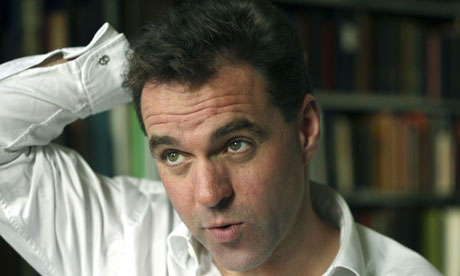Niall Ferguson’s Russia Folly
 Historian Niall Ferguson is well known as a leading thinker in Europe, but after reading his latest piece published on The Daily Beast, we may have re-evaluate that.
Historian Niall Ferguson is well known as a leading thinker in Europe, but after reading his latest piece published on The Daily Beast, we may have re-evaluate that.
Although it’s clear from the tone of the piece that Ferguson is being intentionally provocative more than he is being sincere, his argument that Russia is becoming geopolitically less important is seriously, even ridiculously, flawed.
In witnessing the embarrassment of the latest Duma vote and the subsequent protests, Ferguson writes that Russia’s leadership is driving the country toward irrelevance, making it “just another messed-up petro-kleptocracy,” “Nigeria with snow,” or “a farce” and maybe not quite “the Upper Volta with missiles.”
It’s not worth the time to summarize his reasoning, but essentially he argues that because of the size of the Russian economy, the waning energy monopoly, and declining demographics, we needn’t give the country much thought. Perhaps Ferguson is just looking to poke Putin in the eye, but in doing so he overlooks the many reasons why Russia is still urgently important, sending exactly the wrong message at exactly the wrong time.
Russia currently plays a major role in global security, and will continue to do so for decades to come. I am not simply referring to Russia’s staggering arsenal of approximately 1,566 operational strategic nuclear warheads, 2,000 operational tactical warheads, and approximately 7,000 stockpiled strategic and tactical warheads (though this certain DOES matter). I also refer to its cozy relations with contentious states such as Iran, Moscow’s ability to destabilize Asia, as well as its role as the second largest weapons exporter after the United States (with the majority of these arms flooding into Latin America and Africa, contributing to potential security risks).
From an economic perspective, Ferguson wholly ignores the fact that Russia’s high population of more than 140 million people are more well educated, skilled, and prosperous than many other nations of comparable size. While although there is deficient rule of law and curbed civil rights, all Russians are perfectly free to decide what kind of soda to drink, what brand of cell phone to use, and what kind of car to buy, making Russia a critical growth market for a vast array of international businesses. The spree of acquisitions made both privately and publicly over the past decade, as well as the recent entrance into the World Trade Organization, means that whether Ferguson likes it or not, he is going to have to get used to seeing a Russian presence in a number of the world’s biggest transactions in the coming decades.
Lastly, Ferguson’s cavalier quip that Gazprom’s stranglehold is going to be suddenly dissolved overnight completely overlooks the fact that even with shale gas discoveries and new sources coming online through the Nabucco, Moscow will continue to supply well over 50% of the gas to European markets over the medium and long term.
Russia does not have an ideal leadership at the moment, and the most recent events occurring ever since the presumptive “swap” between Putin and Medvedev have been deeply embarrassing for most citizens, but that hardly means that the country as a whole doesn’t matter any more. If anything, the world should be even more interested in the fate of this crucially important nation, and deeply concerned about its governance.











